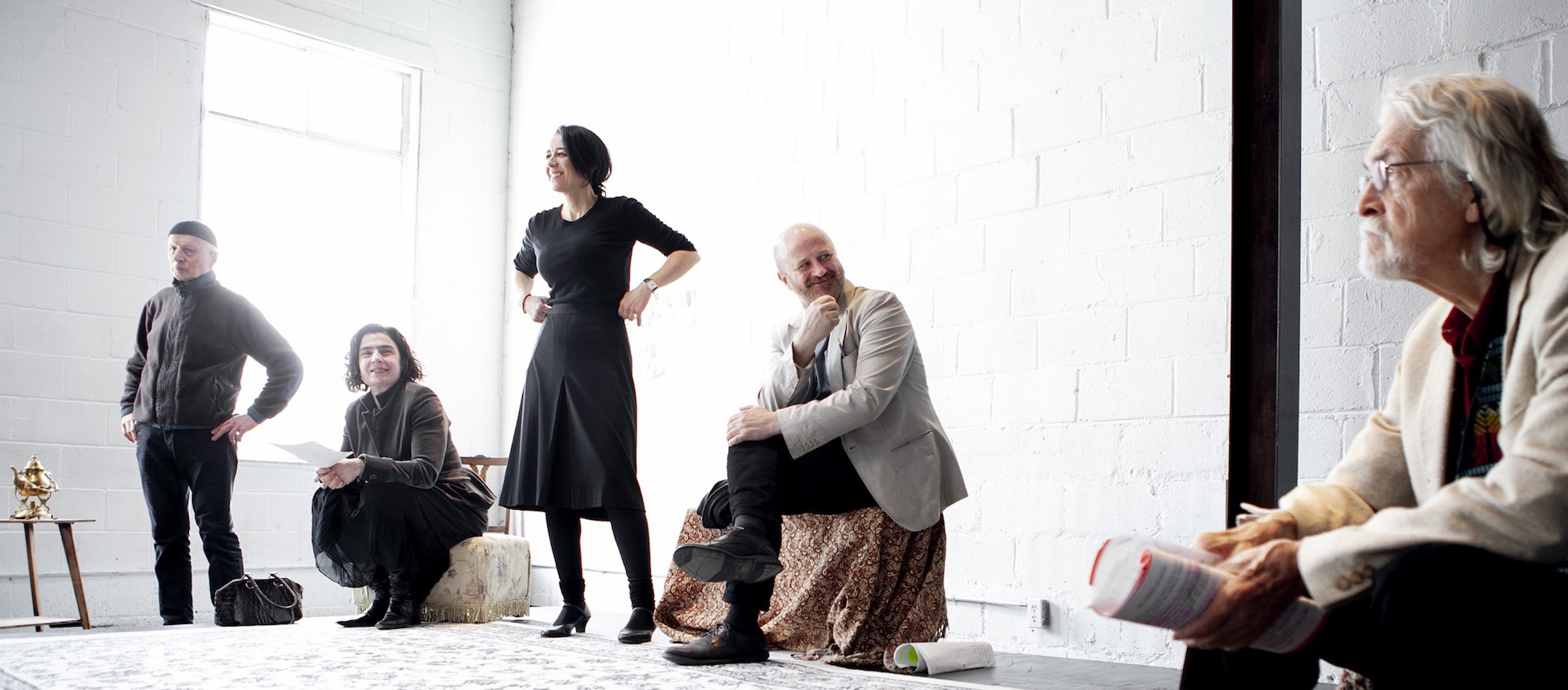
THE CHERRY ORCHARD: Interview with Soheil Parsa
Mar 25, 2019
Written by Walter Strydom
“I see no need for contradiction between the plurality of a streetcar and the plurality of a cast,” states Soheil Parsa, the acclaimed co-Artistic Director of Modern Times Stage Company. “I have always been interested in how the diversity of Toronto could be a creative asset in the productions.”
Known for their collaborative and seemingly effortless approach to diversity, the company behind acclaimed interpretations of classical works such as Blood Wedding, Waiting for Godot, and The Chairs, are taking on Chekhov’s last play at Streetcar Crowsnest this March as part of Crow’s 18-19 Season.
The Cherry Orchard – considered by many to be one of the great classical works of the 20th century theatre – first premiered at the Moscow Art Theatre in 1904 under the direction of none other than Konstantin Stanislavski. Chekhov described the play as a comedy, even calling some parts farcical, but Stanislavski treated the production as a tragedy. Ever since artists across the globe have struggled with the play’s dual nature. For Soheil, who is directing the company’s adaptation, it is Chekhov’s “profound humanism” that draws him in: “His deep understanding and portrayal of the complexity of the human nature in the simplest way.”
We talked to Soheil about Modern Times’ 30th anniversary, The Cherry Orchard, and his approach to staging classics.

Founded in 1989, Modern Times is celebrating its 30th anniversary this year. Are there any plans to commemorate this milestone?
Besides our main activities of the season, we are planning to commemorate this milestone by producing a few events throughout the 2019-2020 season, celebrating the company’s achievements and its contributions to the Canadian theatre with our countless collaborators, supporters and friends. Theatre is a collaborative art form. Without many fantastic actors, designers, stage managers and technical people, we would not have been able to create some of the most memorable and high calibre productions in this city. The company has produced more than 40 productions nationally and internationally over the past 30 years.
Is there particular relevance in returning to The Cherry Orchard during this milestone year for your company?
On the eve of the 30th anniversary, it’s very important to produce a play that is profoundly meaningful to us. Chekhov’s The Cherry Orchard has a special place in the company’s history. The story, the themes and the universe of the play have fascinated us for more than two decades.
The play encompasses all the major themes that have been explored in most of Modern Times’ productions in the past 30 years: human loneliness, the conflict between fate and free will, the mystery of existence, absence, emptiness, loss of values and the inability of people to comprehend the world in which they live. We adapted the play in 1997 under a new title, August 22nd – referring to the date that the family loses the orchard. In spite of many valuable and beautiful elements in our adaptation that were admired by audiences and critics, we were not really satisfied with the artistic outcome of the project. Since then, we’ve always wanted to come back to The Cherry Orchard and try to capture its rhythm and movement, its multiple layers of meaning.
In our upcoming production at Streetcar Crowsnest, the thematic focus will be the inevitability of social transformations and changes and the human suffering that comes with it, as well as human loneliness, the conflict between fate and free will, loss of values and the inability of people to comprehend the world in which they live.
The work Modern Times produces is self-described as aiming to move towards a “human vocabulary” free from cultural and/or societal limitations. What do you find most challenging when stripping away the cultural accretions of classical plays in this search for archetypal universality in the human experience?
The classics, being somewhat removed from contemporary temporal limitations, allow the most freedom for us as artists. I think that the cultural layers of classical plays, in most cases, have already been stripped away throughout the decades and centuries and have become the timeless manifestation of “the human experience.” That’s why they have survived and been vastly translated and produced in different languages and cultures. In a way, the archetypal qualities are already inside the classical plays. It is a matter of finding them.
As a theatre director, I take a more sculptural approach to my productions. The task of a sculptor is to discover the statue inside of a block of stone. The process involves the elimination of all that is unnecessary and prevents the revealing of the statue, the essence. I want to discover and liberate the archetypal qualities and the timeless humane experiences that already exist in the classical plays.
Book now to see Modern Times’ take on Chekhov’s The Cherry Orchard, on stage in the Guloien Theatre at Streetcar Crowsnest March 26-April 13
_________________________________
PHOTOS of rehearsals for Modern Times Stage Company's The Cherry Orchard by John Lauener Photography
THUMBNAIL: Soheil Parsa | TOP: Andrew Scorer, Arsinée Khanjian, Tara Nicodemo, Cliff Saunders, and Steven Bush | MIDDLE: Steven Bush, Colin Doyle, and Oyin Oladejo

